I’m Ivan Landabaso, VC at JME.vc. Startup Riders is a weekly newsletter where I go down startup rabbit holes and share actionable insights. I also love surfing & BJJ 🤙
Summary
🏔 Individual Contributors: 3 tools I wish I had found earlier.
👋 JME Ventures: Say hello on Clubhouse Tuesday 5pm GMT+1!
💵 Recent Deals in Spain: Mjn-neuro, 2gether and more.
💭 Thinking or Reading: Physical fitness empowers the mind.
This post is sponsored by Yellow Birds Creative:
Yellow Birds is a creative agency based in Madrid & Sydney that covers all the creative needs of a business. We offer social media management, content creation, video services, product photography, branding and marketing collateral.
Our one-stop Creative Agency helps bring brands into the spotlight. We help you define and sharpen your vision, and help you bring it to live in a way that connects emotionally with your audience.
❤️ Do you want to sponsor Spanish Startup Riders? Please DM me on Twitter.
🏔 Individual Contributors
I’ve been developing a little individual contributor (IC) tool-box. My hope is that it’ll be helpful to both IC’s and managers - who often rely on overly vague advice - to navigate career decisions and conversations.
I’m aware there is a trade-off between overly prescriptive and flexible approaches to the problem of helping an IC find their “path”.
I look at a “career” as a process of self-discovery, rather than a rigid decision-making protocol one must follow / control (which is were the anxiety usually comes from).
👇 3 tools that I've found particularly impactful 👇1. What I Wish I Knew When I Was 20
This one is great gift for your 20-something friends, but useful for all of us.
Written by Tina Seelig (Stanford Technology Ventures Program) - she offers a plethora of tactical advice for students as they make the transition from the academic environment to the professional world.
Here’s the super simple framework - which is also the central idea of the book:
Keep in mind all of these frameworks are meant to be dynamic pictures - filled multiple times over time.Pretty self-explanatory - a good way to navigate through a career is to aim for the intersection of your Interests, Skills and Market. Granted, this is not a prescription on how to live your life - but it can help alleviate some of the “pressure”.
A few tactical pieces to implement it:
Track your 3 circles - Bookmark it on your browser: Open a Google Sheets, make three columns (Interests, Skills & Market) - and fill them (over time) with what you believe could fit each category. Bookmark it.
Track your high/low energy zones: I particularly struggled with skills, in the sense that I struggled to identify which ones I enjoyed exercising more. Keep a piece of paper next to you at work marking high-low energy zones - then update your Spreadsheet (above) over time.
Go deeper: You can try a few questions to identify your real interests aka those you had even before being subjected to (a lot of?) outside influences (i.e. as a kid).
Three things you loved before age 5 (ask your parents)
Three jobs you wanted or heroes I had before age 5 (mine were Batman and Goku)
What things did you find energising when you were at school?
2. Design your life
This one is very helpful to help you decide when / if you need a change.
This book (and also extremely popular course at Stanford) is a phenomenal resource. There is a multitude of frameworks and tactical advice, but out of all of them, my favorite is the Energy Dashboard.
The idea is super simple - every 6 months or so, map out your energy across 4 dimensions (Work, Play, Love & Health). Then time-stamp it and include a location, and make changes when/if the data shows you that you should.
Here’s an imaginary example:
3. The Job Algorithm
I stumbled across these great tactical frameworks a few years ago. I’m going to break this down a little differently than Hemant (the author).
Here’s what it looks like and the steps to follow:
Identify Jobs: Use tools 1 & 2 in this post (intersection of market, skills and interest) to figure out a few potential jobs you might possibly be interested in. Set them in the first column.
Set Variables: Map out what factors you value about and around a given job. Break it down into Professional (i.e. fit, autonomy, learning) and Personal (i.e. location, salary, time) segments.
Set Weights: Assign a weight to each of those segments (Professional & Personal) from 0 - 1. And do the same across sub-segments (aka what you care about) - see the example below.
Set Job Values: Now give a score from 0 - 10 to each sub segment for the jobs listed in column 1. For example, you might five Job#1 a score of 10/10 on fit, but a 2/10 in terms of learning potential/feedback.
Calculate Total Score: now calculate the weighted average score per Job. For the example above, for job#1, the way you find the total score is:
professional-weight *{(fit-score * 0.3) + (autonomy-score * 0.2) + …} + personal-weight * {(location-score * 0.6) + (salary-score * 0.4)}
By now you should have identified which Job might be best to pursue BUT perhaps it is not something you could (realistically?) get to in the immediate-term.
I found it super helpful to map out / visualize — on a 3 dimensional plane- what skills you’d need to get there, and what intermediate steps (including lateral career moves) you could take to get there. Here’s Hemant’s example:
Now Execute! You can do this 2x/year to accommodate for change (ps. IMO change is great, my own visualization has zig-zagged many times just like this 👇). 👋 JME Ventures
If you are interested in learning more about the Spanish startup scene, come join the JME Ventures team for a casual coffee on Tuesday Feb 2nd at 5pm GMT+1.
This is a highly experimental session, so all feedback (especially the harsh one!) is appreciated.
💵 Recent Deals In Spain
You love startups and want to enjoy a Spanish lifestyle? Come join the Spanish startup ecosystem. Here’s a list of recently funded startups:
Mjn-neuro (Healthtech) raised €2.1m
2gether (Crypto) raised €1.5m
Yamnaya (Ecommerce) raised 350K
The Sampling Solutions (Sampling) raised €260k
Legal Pigeon (Legal) raised €200k
💭 Thinking or Reading
Physical Fitness Empowers The Mind 🧠
A healthy body leads to sharper thinking.
Monkey Business
Interesting article on economics written by the creator of Ethereum - Vitalik Buterin
Quote Of The Week
🙏 If you liked the newsletter, please consider sharing it with your friends 🤙



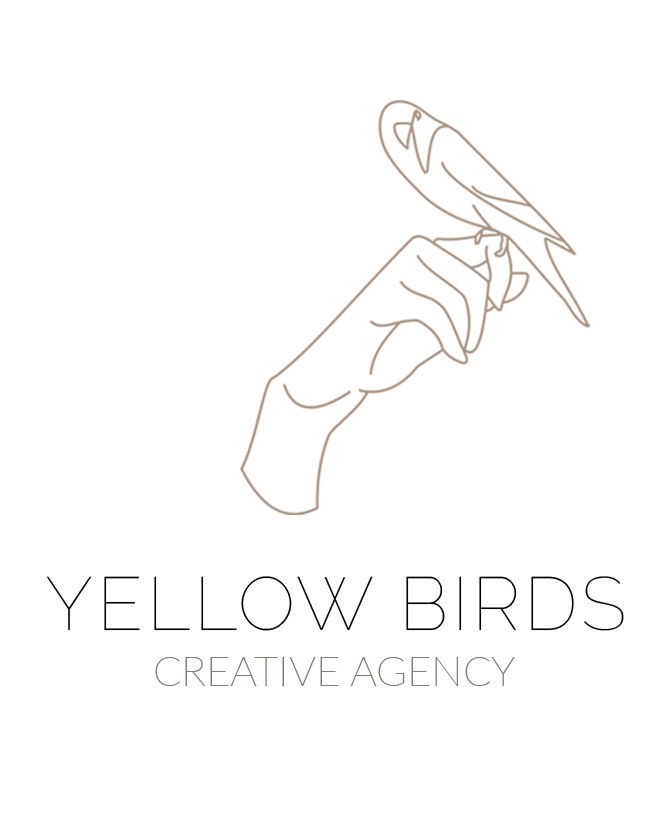
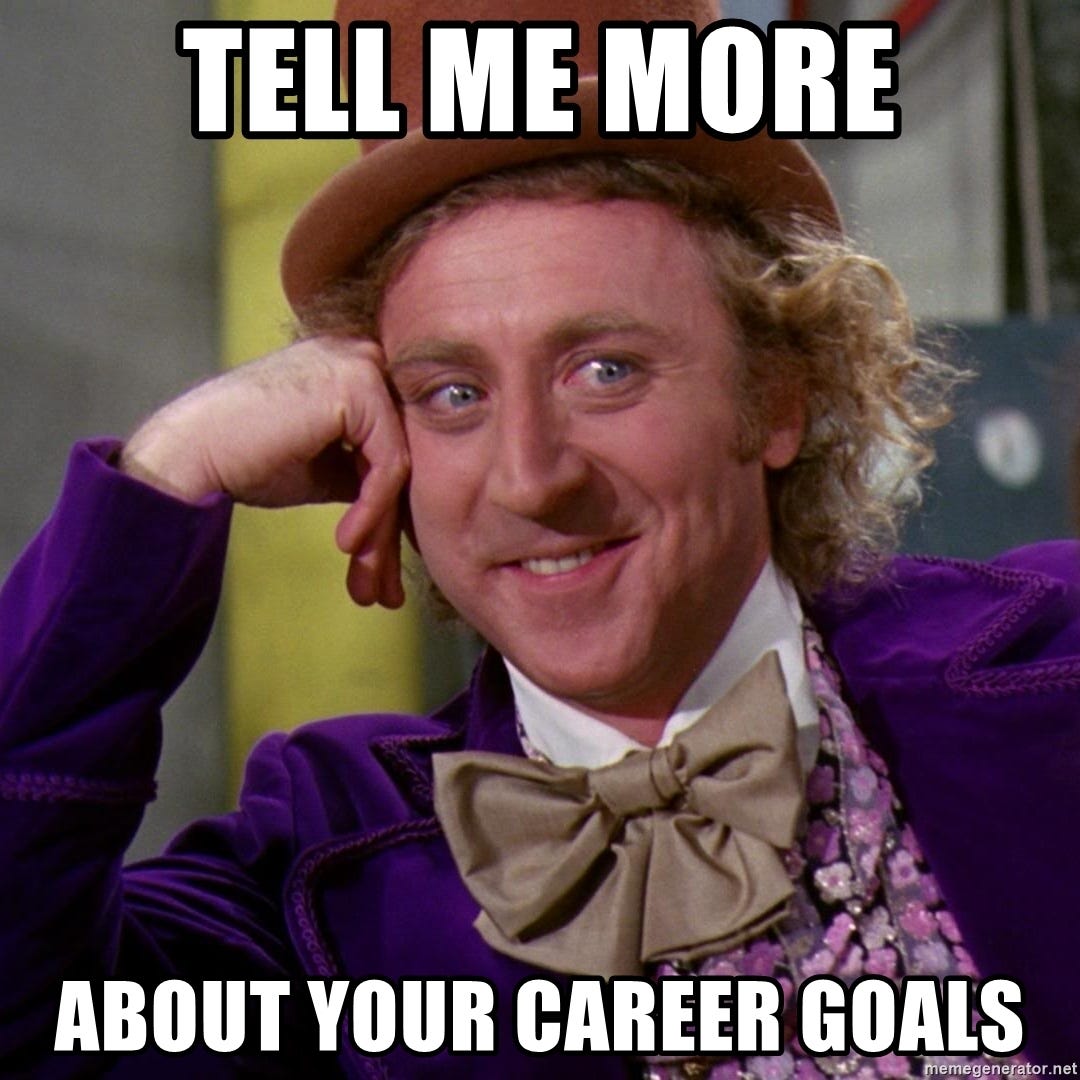
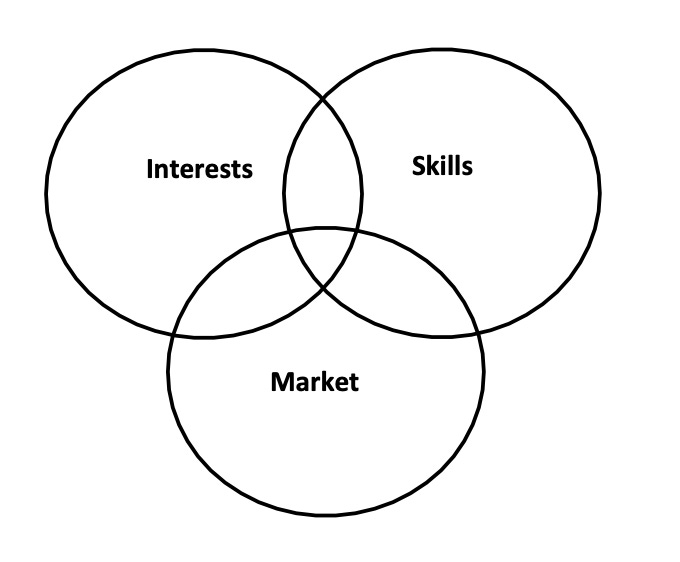


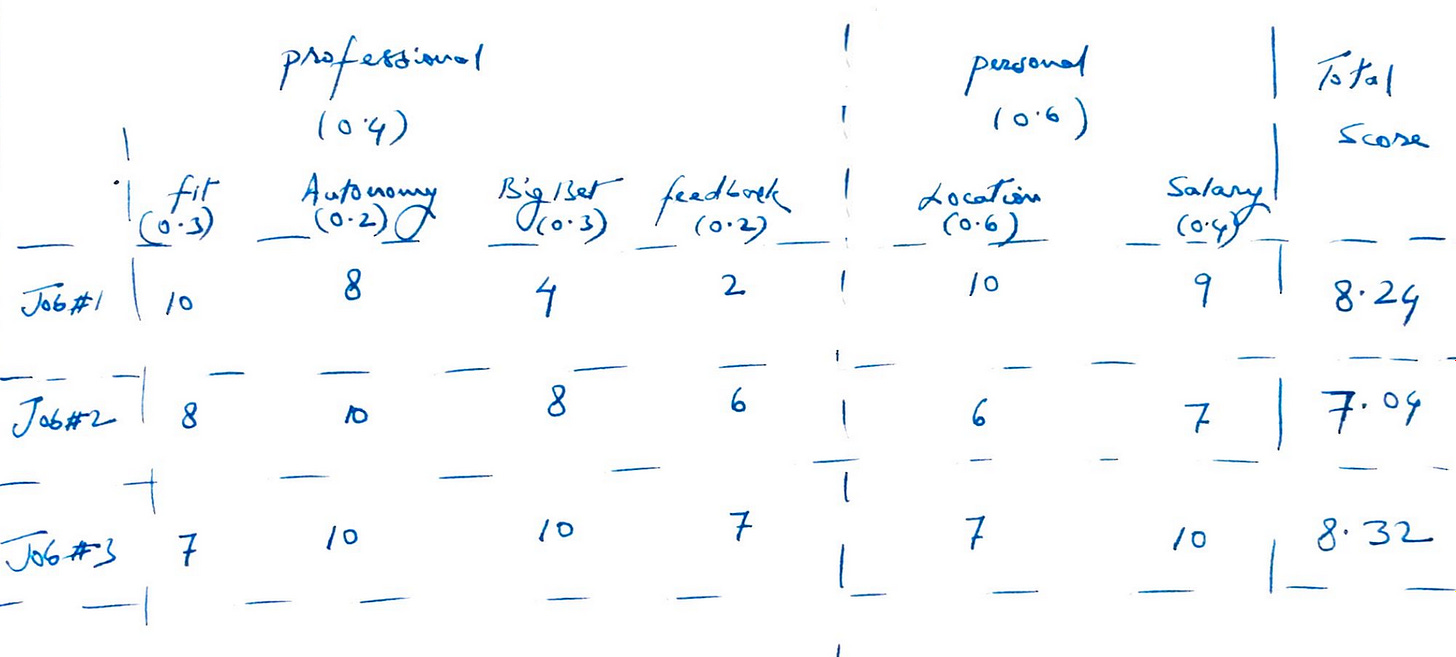

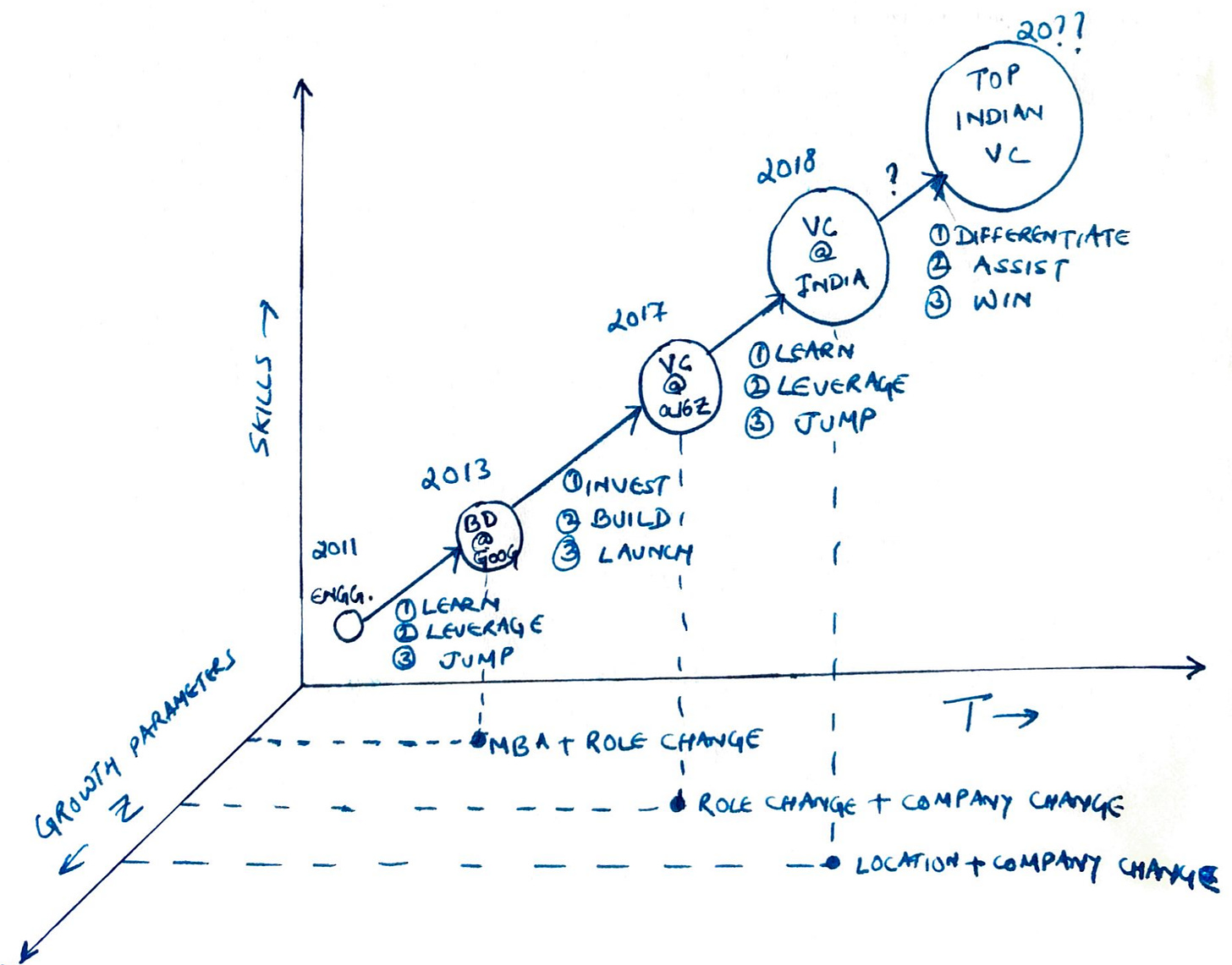

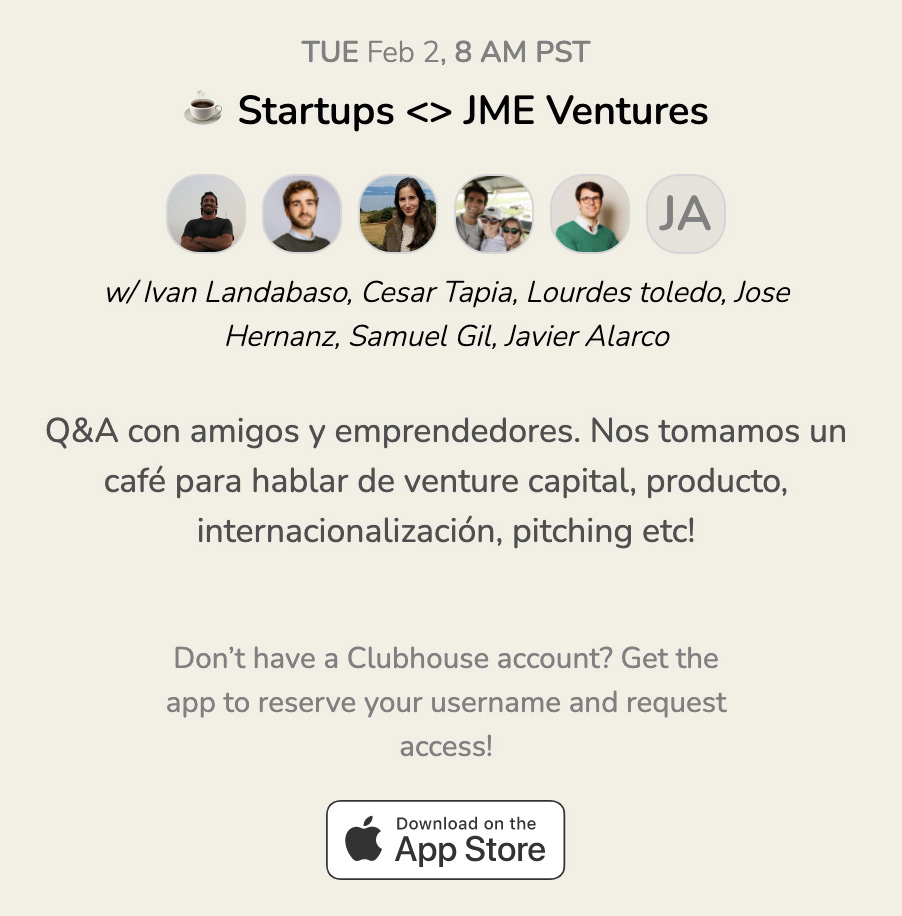
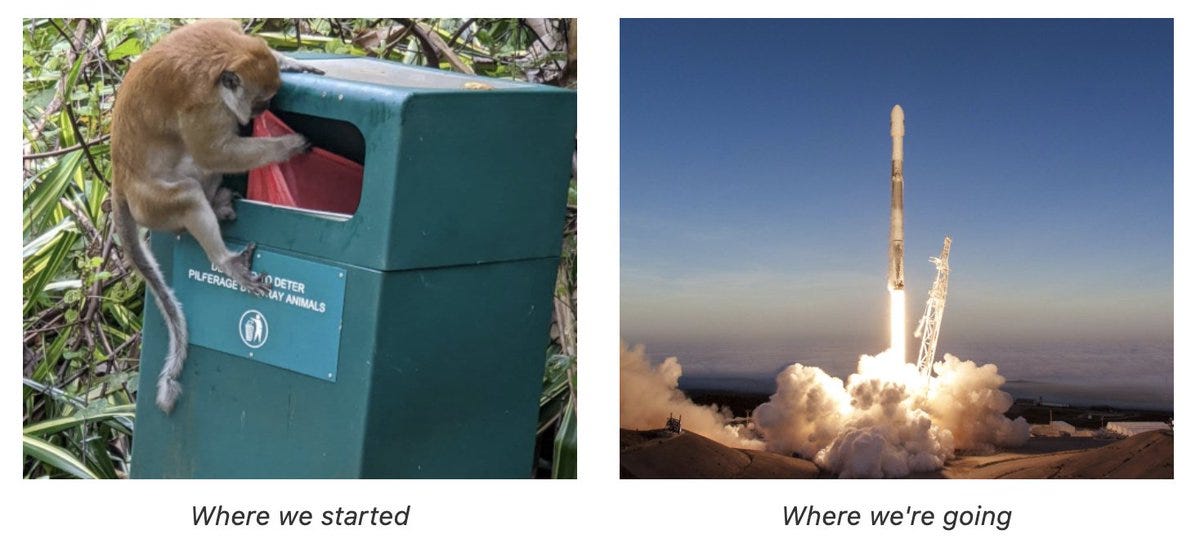

I'm about to finish University and one thing I learned during my first work experiences is that testing, experimenting, trying out different experiences, roles and environments is really something fundamental for choosing not only where you want to go, but above all where you DON'T want to go. He wants to go. For me, for example, it made me realize that I wanted to try to pursue a career in research. I understood this especially after having gained experience in the company. If I had to give advice to all my peers who are about to get their degrees, it is: test as much as you can starting from what you think you might like, and move on. But some frameworks, like the ones you shared, always help!
One thought… As I’ve gotten older, I’ve realized most of us (including me) overemphasize the Market and Skills portion of choosing a career.
And deeply undervalue Interests.
The trouble is that no one else cares about your Interests, so you have to keep them centered or the Market will override them.
The other component I add now is Impact: where do I want to be useful to others?